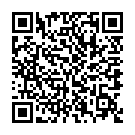|
|
|
| Module code: MST2.SYS2 |
|
|
2V+2U+2P (6 hours per week) |
|
7 |
| Semester: 5 |
| Mandatory course: yes |
Language of instruction:
German |
Assessment:
Written exam 150 min. (100%) + Practical course (ungraded)
[updated 06.11.2020]
|
MST2.SYS2 (P231-0081, P231-0082) Mechatronics and Sensor Technology, Bachelor, ASPO 01.10.2019
, semester 5, mandatory course
MST2.SYS2 (P231-0081, P231-0082) Mechatronics and Sensor Technology, Bachelor, ASPO 01.10.2020
, semester 5, mandatory course
|
90 class hours (= 67.5 clock hours) over a 15-week period.
The total student study time is 210 hours (equivalent to 7 ECTS credits).
There are therefore 142.5 hours available for class preparation and follow-up work and exam preparation.
|
Recommended prerequisites (modules):
MST2.SYS1 System Theory and Control Engineering 1
[updated 13.07.2021]
|
Recommended as prerequisite for:
|
Module coordinator:
Prof. Dr. Benedikt Faupel |
Lecturer:
Prof. Dr.-Ing. Barbara Hippauf (practical training)
[updated 13.07.2021]
|
Learning outcomes:
After successfully completing this course, students will be familiar with the subject-specific terminology of continuous control loop structures and be able to analyze the behavior and influencing variables in control loop structures in the time and frequency domain. They will be able to classify different types of controllers and design technical components for their realization. Based on standard setting procedures, students will be able to implement requirements on the quality of control loops for the design of control parameters, which will be adapted and optimized using simulation models and case studies.
The practical course will provide an insight into computer-based measurement and control technology with application-oriented, flexibly designed experiments.
[updated 06.11.2020]
|
Module content:
1. Basics of control engineering
1.1. Control system elements and signal flow diagrams
1.2. Definitions, standards und terminology, differences between feedback control / feedforward control
1.3. Practical tasks of control engineering in process plants
2. Static and dynamic behavior of control loops
2.1. Control and disturbance transfer behavior
2.2. Determining the steady-state control deviation for different input wave forms
3. Design / adjustment / optimization of controllers in time domain
3.1. Setting control loops to defined damping
3.2. Setting control loops according to Ziegler-Nicols, / Chiens, Hrones, Reswick
3.3. Tuning according to the T-Sum Rule
3.4. Tuning according to amplitude and symmetrical optimum
4. Design, controller adjustment and optimization according to the frequency response method
4.2. Tuning according to phase and gain margin
4.3. Setting controller parameters in a Bode plot
5. Discontinuous controllers (two- and three-point controllers)
5.1. Time response
5.2. Optimization / setting discontinuous controllers
6. Applications - control loop behavior and controller design with MATLAB/SIMULINK
7. Example implementation of software controllers on PLC systems
[updated 06.11.2020]
|
Teaching methods/Media:
Presentation, blackboard, lecture notes
[updated 06.11.2020]
|
Recommended or required reading:
Dorf, Richard C.; Bishop, Robert H.: Moderne Regelungssysteme, Pearson, 2006, 10. Aufl.
Föllinger, Otto: Laplace- Fourier- und z-Transformation, VDE, (latest edition)
Föllinger, Otto: Regelungstechnik, VDE, (latest edition)
Grupp Frieder; Grupp Florian: MATLAB für Ingenieure, Oldenbourg, München, (latest edition)
Lutz, Holder; Wendt, Wolfgang: Taschenbuch der Regelungstechnik, Harri Deutsch, (latest edition)
Schulz, Gerd: Regelungstechnik, Oldenbourg, (latest edition)
Unbehauen, Heinz: Regelungstechnik, Vieweg + Teubner, (latest edition)
[updated 06.11.2020]
|


